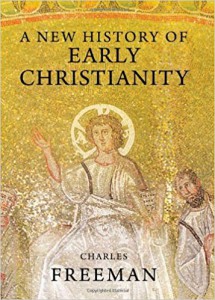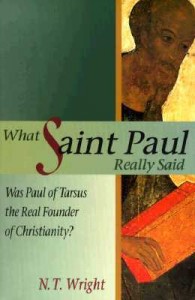[Christians would call this “testimony” — we Sinaites simply explain our journey of faith that began in Catholicism to Evangelical Christianity and on to Messianic Judaism and now we have arrived at Sinai 6000. This was among the first articles posted in this website, dated April 6, 2012; contributed by SMK@S6K who resides in Texas USA. We have featured her husband’s watercolor art in this website:
We wish he had painted the the image featured here.—Admin1]

“Wings Of The Wind” is a painting by Karen Condron which was uploaded on June 19th, 2014.
Death is a painful subject that many people wish to avoid. No intention to be gruesome but really, there is no denying the fact that that is the destination that we all share. Famous movie actor Woody Allen once quipped, “I’d like to attain immortality by not dying.” If only that were possible, what a relief it would bring many. But it is not. It is one of those things we start thinking about when we face a life threatening crisis, be it a disease, an accident or even reaching the winter season of life. Certainly it will come but how prepared we are puts us in a dilemma.
I, for one, was not ready. Death was a monster that horrified me. I married a pilot whose risky career faced that eventuality anytime. I could not bear the thought of losing him nor any of the people I love.
In 1979, the untimely death of my Dad hit me with a big blow. The most influential person in my life was gone. In my grief, I could not find any solace though I pretended to be strong. Where shall I find the strength to comfort this reality? Who was there guide me? I knew God has the answers but where do I find Him? I certainly did not find Him in the religion of my birth. To fill this vacuum, I accepted the suggestion of friends from Campus Crusade to open a regular bible study in our home. I was a staunch Catholic and I launched into the bible study with a skeptical mind. But the Bible proved me wrong. The bible study became the beginning of my lifetime pursuit of intimacy with God. Like everyone else, I acknowledged that I was indeed a sinner and needed forgiveness from God. However I was baffled with the idea that Jesus took responsibility for my sins and died on my behalf. Was I not supposed to be responsible for my sinful actions? But like everyone else , I humbled myself in repentance and gratefully accepted salvation in Jesus. By faith I became born again. Learning Scriptures produced a radical change in my life and outlook.
Foremost, prayers to my favorite saints now focused exclusively on the Triune God of Father, Son and Holy Spirit. Oftentimes though, it confused me whom to address my prayers, since each Person of the Trinity performed specialized functions. While other denominations emphasized prayers to the Holy Spirit, my evangelical faith centered on Jesus. Being the practical person that I was, I played safe and prayed to God the Father, Whom I perceived as the Chairman of the Board of the Trinity. I never shared this perplexity with anyone, not even to my husband. It was between God and me and I prayed that someday, He will show me some answers.
Another thing that bothered me was the practice of calling for Christ’s imminent return to extinguish personal troubles. I found that dumb, cowardly and irresponsible. Unlike animals, God created man with the intelligence to process circumstances that will bring out a better change in our character. Feeling all alone with my questions, I proceeded on in my Christian walk, living the best as I could to give honor and glory to God. But my longing left me disquieted in spirit like” the deer pants for the living water.”
Then I stumbled into the doctrine of the Sovereignty of God and the accountability of man. This teaching made sense to me and I became excited in my spirit. Surely this confirmed that God did not make me into a robot. Robots do not have the ability to reason out with God. The Patriarch Abraham did and so did Moses, David, Solomon, Job and many others. God reasoned with them and they enjoyed His intimate fellowship. That God gave man the freedom to be
responsible for his choices became the underlying motivation for my faith journey. My late father was never a religious man but I saw that he was a righteous man in every way. One time, I mustered the boldness to ask him why he never joined us in church. He said that he prayed directly to God and if he needed to confess, he confessed directly to God. God is God and he does not need any mediators. Shocked at his theology, I kept this quietly in my heart. At the time of his death, I was afflicted with much grief because I perceived his convictions to be heretical.
In the 30 years of my Christian life, my husband and I have taken an active part in pioneering 3 evangelical churches and 3 Christian schools. Church ministries were our source of fulfillment but the thirst for intimacy with God lingered on. It seemed to burrow on my spirit.
During a conference held in Baguio City, it dawned on me that Jesus was a Jew. He was raised and educated in the Torah in the historical culture and setting of the land of Biblical Israel. How could I have missed that detail all these years? The thrust of the conference encouraged us to study the Hebrew roots of our Christian faith.
Back in Manila, we joined a group that met every Jewish Sabbath for Torah study. No rabbi was present to teach us but we all took the responsibility to research and learn from each other. The studies were thorough and the lively discussions exhilarated my spirit. I felt I was connecting with the Biblical God of Israel, His people and His land. I was beginning to understand the God that Jesus was pointing to in his teachings. But as our group deepened in our study, I found contradictory teachings between the Old and New Testament that shook my spiritual position.
First of all, If God declared Himself in theTorah that He is One and Indivisible, why then was I taught to believe in a divisible Trinitarian God?
Hear, O Israel: The Lord our God, the Lord is One. You shall love the Lord you God with all your heart and with all your soul and with all you might.
[Deuteronomy 6:4-9, 11:13:21 and Number 15:37-41]
Before Me there was no god formed, nor shall there be after Me. I, even, I am YHWH, and besides Me, there is no Savior. [Isaiah 43:10]
Secondly, If human sacrifice is so horrible a concept to God that it did not even come into His mind according to Jeremiah 19:4-6, Ezekiel 16:20 and Psalm 106, why then did the apostle Paul teach in Romans 3:25 that Jesus sacrificed himself as “the propitiation for our sins through faith in his blood.”
Thirdly, if God can directly forgive our sins, what then is the value of Christ’s sacrifice on the cross?
You do not delight in sacrifice or I would bring it; you do not take pleasure in burnt offerings. The sacrifices of God are a broken spirit; a broken spirit and contrite heart, O God you will not despise. Psalm [51:16-17]
He prays to God and finds favor with him, he sees God’s face and shouts for joy; he is restored by God to his righteous state. [Job 33:26]
If my people, who are called by my name, will humble themselves and pray and seek my face and turn from their wicked ways, then will I hear from heaven and will forgive their sin and will heal their land. [2 Chronicles 7:14]
Finally, if the Bible is clear and consistent that no one can die for the sins of another, that one person’s guilt cannot be forgiven because of another person’s death, why then did Jesus die for us?
The fathers shall not be put to death for the children, neither shall the children be put to death for the father. Every man shall be put to death for his own sin. [Deut.24:16]
These contradictions became my friends because in them, I found the truth. As I continue to walk in the joy of knowing the God of Abraham, Isaac and Israel, I experience so much freedom along the way. I agree with the prophet Jeremiah when he wrote in 33:2-3, I call unto Him and He answers Me and tells me great and mighty things which I do not know.
Surprisingly, the fear of death does not bother me anymore. I don’t know why. Perhaps it is because I am now enjoying a deep fellowship with God in His Torah, His blueprint for life. Truly, if from there you seek the Eternal your God, you will find Him if you look for Him with all your heart and with all your soul. [Deut. 4:29]
In the One Indivisible God, I found my life and I found my peace. My Dad was right after all.







